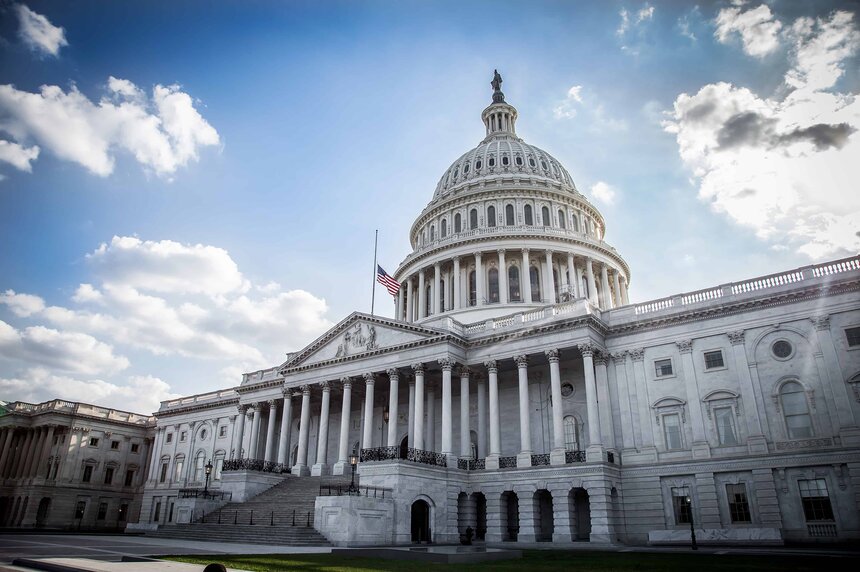A Historic US Policy Shift Reflects the Promise of Reglabs

Financial regulators’ statement on alternative data draws on FinRegLab lending report
This week, five federal regulators issued a joint statement that using alternative data could expand access to credit. The US has a notoriously fractured financial oversight framework. It’s not easy for US federal regulators to join forces and it doesn’t happen often. This was a historic moment.
What makes this week’s joint announcement even more extraordinary is that it was partly informed by a FinRegLab experiment on cash-flow data for underwriting credit. The FinRegLab team had workshopped the study with each of those regulators in closed door sessions over the last six months. The study was cited in internal memos.
We’ve written before about regulatory sandboxes or reglabs. They allow companies to run small-scale tests of new financial products and innovative approaches, as well as how these experiments are designed to protect consumers. And we seeded the first US industry sandbox, FinRegLab, in 2017.
Does cash-flow data use advances inclusion?
Several fintech companies—including some backed by Flourish—have pioneered the use of alternative data for credit assessment. For example, Brigit provides cash advances to consumers while monitoring their bank account balances to avoid overdraft fees. Kabbage offers small business lines of credit in exchange for one year of operating history.
Alternative data models have the potential to be more inclusive because, currently, nearly 60 million American consumers struggle to get affordable credit in a financial system based on traditional credit scores. It’s widely believed that traditional credit reports and scores may perpetuate inequities in lending.
Cash-flow data is a specific type of alternative data. These lending models assess creditworthiness based on checking account and payments data, but they have not been widely accepted by US regulators.
FinRegLab’s 2019 experiment evaluated how these lending models really work. Previous evidence was very limited, and there were concerns that the algorithms—like traditional credit scores, but for different reasons—could lead to discriminatory results. Despite calls for change for over a decade, the regulatory needle had barely moved.
Rigorous, time-bound studies
So FinRegLab brought together six fintechs—Petal, Oportun, LendUp, Brigit, Kabbage, and Accion—for the first time to analyze both consumer and small business lending models. They looked into application and loan-level data, including cash-flow variables, alternative credit scores, and loan performance. Data from over 400,000 loans was collected, and the reglab performed an independent, quantitative fair lending analysis (the methodology is detailed in FinRegLab’s report).
The assessment found compelling evidence that the cash-flow variables and scores tested were predictive of credit risk and loan performance across the diverse set of companies, populations, and products studied. The cash-flow based fintechs were found to be serving borrowers who historically may have faced constrained access to credit.
Moreover, the cash-flow variables appeared to provide independent predictive value of creditworthiness across racial, ethnic, and gender groups—at least as well or better than traditional scores.
This is how reglabs further innovation
A reglab or sandbox is designed to conduct unbiased and substantive analysis to help regulators get smart. Industry sandboxes, like FinRegLab, share their analysis with policymakers through papers and workshops. FinRegLab conducted a number of such workshops just for regulators before releasing the study. In this week’s joint statement, the five federal regulators affirmed FinRegLab’s findings that “using alternative data may enable consumers to obtain additional products and/or more favorable pricing/terms.”
The regulators’ endorsement will directly affect traditional banks and fintechs’ capacity to use these models to extend loans to the millions of Americans who lack formal credit history but have accounts that generate cash-flow data. It sets the stage for more substantive policy changes.
The role of reglabs will become more and more important, because new business models are not readily understood by regulators. Understanding and considering sandbox data and analysis is a way for regulators to better enable innovation that expands access while protecting consumers and the financial system.
If we’re going to build a fair financial world, we need stronger, more tech-savvy and consumer-centric regulation. Reglabs or sandboxes provide timely and meaningful evidence to inform regulators, and this week’s response from the federal authorities in the US is a clear sign it’s working.